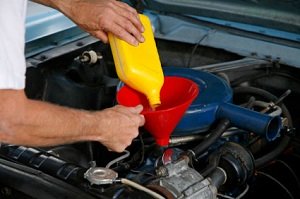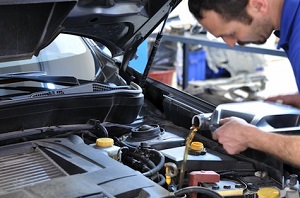9 Tips for your Spring Vehicle Checkup
 The temperatures are inching upward, the days are getting longer and the first buds are starting to appear on the trees. Spring is on its way, and soon it’s going to be time to do a little preventive maintenance on your ride. No need to dread it -- it’s all pretty routine stuff!
The temperatures are inching upward, the days are getting longer and the first buds are starting to appear on the trees. Spring is on its way, and soon it’s going to be time to do a little preventive maintenance on your ride. No need to dread it -- it’s all pretty routine stuff!
- Air filter - If you haven’t changed your air filter since last year (or can’t remember when you changed it at all), it might be time. It’s an easy and cheap fix, and it pays off in your vehicle’s performance and fuel economy.
- Cabin filter - Older vehicles often don’t have a cabin filter, but it can make a lot of difference in how pleasant your vehicle is to drive. Stale, smelly air? Change it!
- Wipers -- Get a good look at them. Are they showing signs ...[more]
Potholes...A Sign It’s Spring
 Nobody needs to remind you this has been an especially harsh winter.
Nobody needs to remind you this has been an especially harsh winter.
Winter is not just hard on vehicles and the people who drive them -- it’s hard on roads, too. With fluctuations in temperature and freeze/thaw cycles, pavement materials expand and contract, leaving streets with cracks and potholes. Add in the effect of washouts from heavy rain, caustic de-icing chemicals and damage from vehicles with studs or tire chains, and you can end up with springtime road surfaces which are a real mess.
Unfortunately, you can’t wait for the highway department to repair damaged pavement...you’ve got to get where you’re going, and your car’s tires, suspension and alignment are likely to pay the price. A hard impact on a pothole can be enough to tweak your front end ali ...[more]
Why Schedule Regular Oil Changes For Your Vehicle?
 Many vehicle owners do not take the time to schedule regular oil changes. Regular oil changes are vital to the life of your engine and can extend its performance for years. This is one of the most important and inexpensive things you can do to keep engine protected. Most manufacturers recommend changing your oil every 3,000-6,000 miles, depending on your vehicle use and the type of oil you are using.
Many vehicle owners do not take the time to schedule regular oil changes. Regular oil changes are vital to the life of your engine and can extend its performance for years. This is one of the most important and inexpensive things you can do to keep engine protected. Most manufacturers recommend changing your oil every 3,000-6,000 miles, depending on your vehicle use and the type of oil you are using. - Lubricate engine to reduce wear and friction
- Reduce engine temperatures
- Maintaining proper engine function



